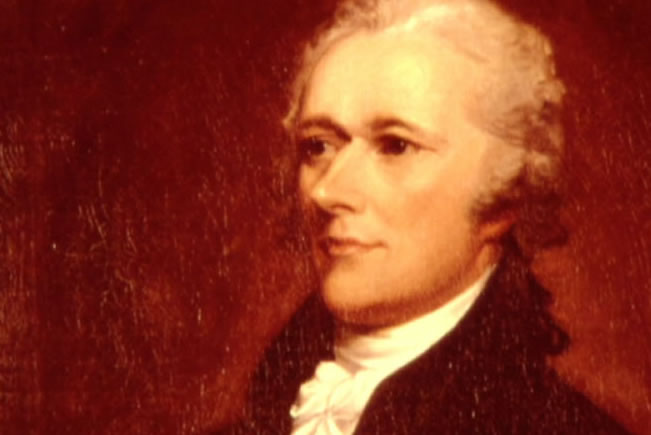This page describes the differences between Federalists and Republicans following ratification of the Constitution.
 |
|
Federalists vs Republicans |
Hamilton's Federalists
The Federalist Party was America's first political party, formed chiefly by Secretary of the Treasury Alexander Hamilton during his tenure in George Washington's cabinet. The Federalist Party believed in strong central Government, a national banking system and good relations and trade with England. The Federalist Party quickly gained strength throughout New England and in the urban areas of the middle states.
Jefferson's Republicans
Those who opposed the Federalist Party would become known as Republicans or Jeffersonians. Led by Thomas Jefferson, Republicans favored an agricultural economic base rather than one based on banking and opposed the idea of strengthening ties with Great Britain. Republicans dominated the politics of the Southern states and much of America's farmlands.
Partisan Politics Threatened the New Nation
The partisan politics that emerged in the 1700's threatened to tear the new country apart as Both Hamilton and Jefferson were key members of George Washington's cabinet. Washington tried unsuccessfully to mediate between the two, but was known to favor Hamilton's view on politics above anyone else. As a result, Jefferson would resign as Secretary of State in 1793, after he unsuccessfully introduced legislation in Congress that would have effectively dissolved Hamilton's position as Secretary of the Treasury. Republicans would win back the seat of power in 1801 with the election of Thomas Jefferson as President and the subsequent splitting of the Federalist Party. The Federalist Party would be virtually dissolved after expressing opposition to the War of 1812 and completely gone by 1825.
|
|
|
|
Advertisement

Remove ad